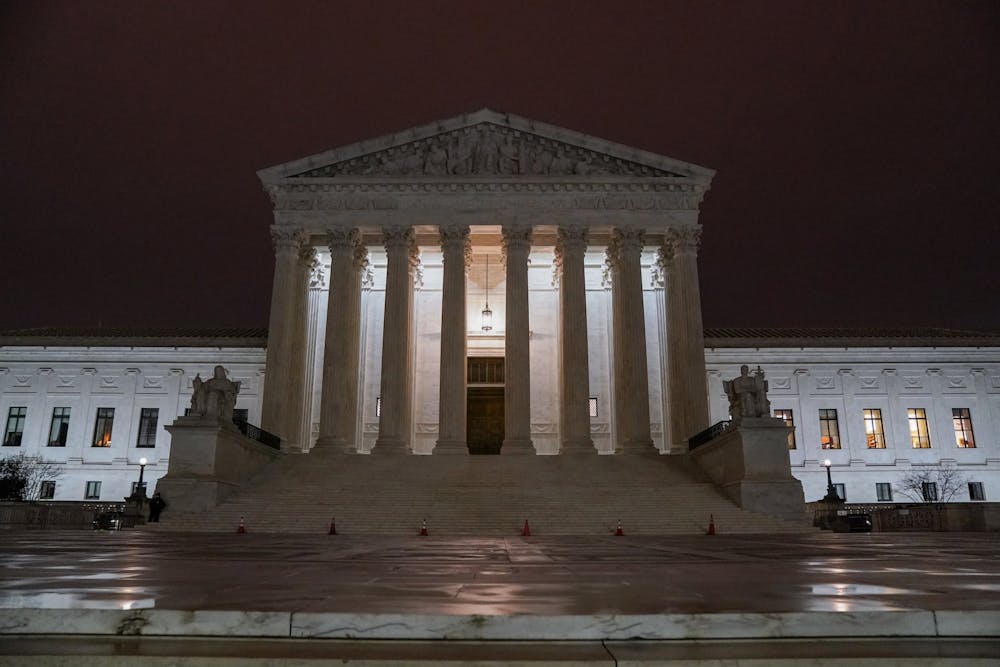The U.S. Supreme Court reversed a lower court decision on Tuesday that allowed undated mail-in ballots to be counted in a Pennsylvania county election.
The 3rd U.S. Circuit Court of Appeals ruled in May in a decision about a 2021 Pennsylvania judge race that mail-in ballots with inaccurate or missing dates on the return envelope had to be counted. The Supreme Court’s latest ruling instructed the lower court to dismiss the case as moot.
The decision will not change the current guidance on counting ballots, according to Pennsylvania’s top-ranking elections official.
State law requires that voters include a signed and dated declaration on the outer envelope when mailing in their ballot. In the 2021 Lehigh County election for common pleas judge, the state board set aside 257 mail-in ballots that did not comply with the dating requirement.
A group of voters went to the federal district court, arguing that the undated ballots should be counted. The 3rd Circuit Court of Appeals decided that the omission of a handwritten date was “immaterial” to a voter’s qualifications, and that the requirement violated the materiality provision of the Civil Rights Act. After the new count including the undated ballots, Democrat Zachary Cohen, who had previously been trailing his opponent in the tallies, won the election by a five-vote margin.
Philadelphia first implemented mail-in voting in 2019. Before the 2020 elections, state officials and constituents worried that requirements such as signatures and secrecy envelopes would cause possible ballot rejections and controversy.
Counties should continue including undated ballots in their count despite the Supreme Court’s invalidation of the decision from May, according to acting Secretary of State Leigh M. Chapman.
The order to vacate the 3rd Circuit case “provides no justification for counties to exclude ballots on a minor omission,” Chapman said in a statement. “We expect that counties will continue to comply with their obligation to count all legal votes.”









